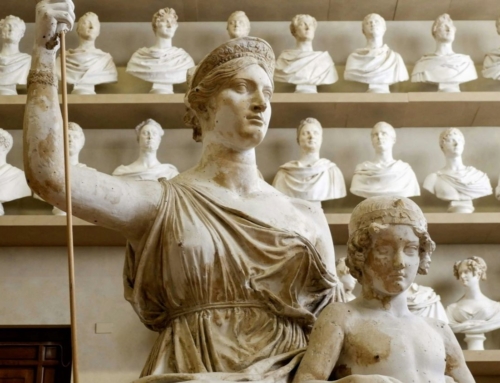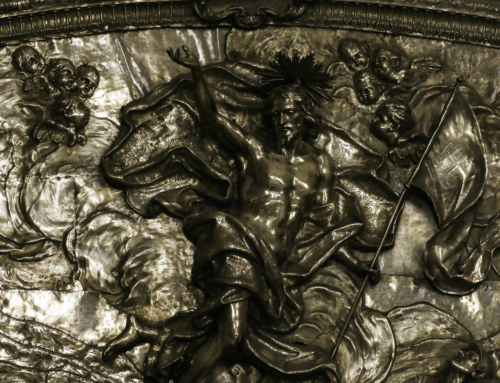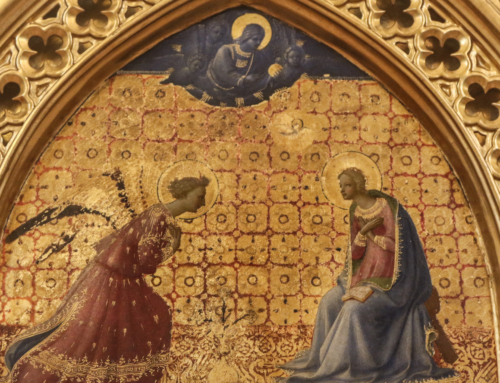Imagine a world where everyone is hunched over. An exaggerated convex curvature of the spine encumbers all. We’re just born this way. We can function, but it’s labored. Everything requires more effort. It feels like everything that’s good is on the top shelf, hard to reach. Our gaze is naturally cast down, not up.
We can strain to straighten ourselves, to reverse the course of nature, though it’s tough. It demands assiduous effort. Some do choose to try, while many others refuse. Too hard, they think. Not really worth it.
Now imagine a child is—gasp!—born upright. She shows no signs of the condition the rest of us labor under. She starts from the place where only a few, through lifelong discipline, end up. She need not endure the slow healing that it takes for others to gain their uprightness.
Such is the holiness with which Mary was conceived.
Original sin is annoying. It’s the thing that causes us to be born spiritually hunched over. We can be freed from it (hooray baptism), but its effects cling to us. We’re still inclined to slouch. All our lives we battle against it. By God’s grace, we can gradually improve our posture. Those who love wholeheartedly and heroically—the saints—strain so much to look up toward God that, at their death, they find themselves perfectly upright. They actually reached full stature in their lifetimes.
Yet, even among the saints, Mary is unique. St. Augustine proposes a thought experiment: if we could survey each and every citizen of heaven and ask if any had lived without sinning, all of them would reply, “If we say we have no sin, we deceive ourselves, and the truth is not in us.”
All of them but one. Mary alone would step forward, radiant in her humility, and say, “Behold the handmaid of the Lord.”
The penalty of original sin was lifted in this one extraordinary case. Whereas all of us were born in need of some divine OxiClean, our Lady was conceived pure, and she loved with a stain-resistant love all her days.
Mary does not lord this special privilege—the one that prepared her to be the mother of our Healer—over us. On the contrary, it inspires her to stoop down and come to our aid. “The plenitude of grace in Mary was such that its effects overflow upon all men,” St. Thomas teaches. We can place our hope in her help, and our trust in the Son she bore. Pope Benedict XVI once remarked:
One could say that man is alive as long as he waits, as long as hope is alive in his heart. And from his expectations man recognizes himself: our moral and spiritual “stature” can be measured by what we wait for, by what we hope for.
This Advent we await Mary’s Son, who won salvation for us. Christ was born to save—the slouchers.
✠
Image by Maria Mekht







